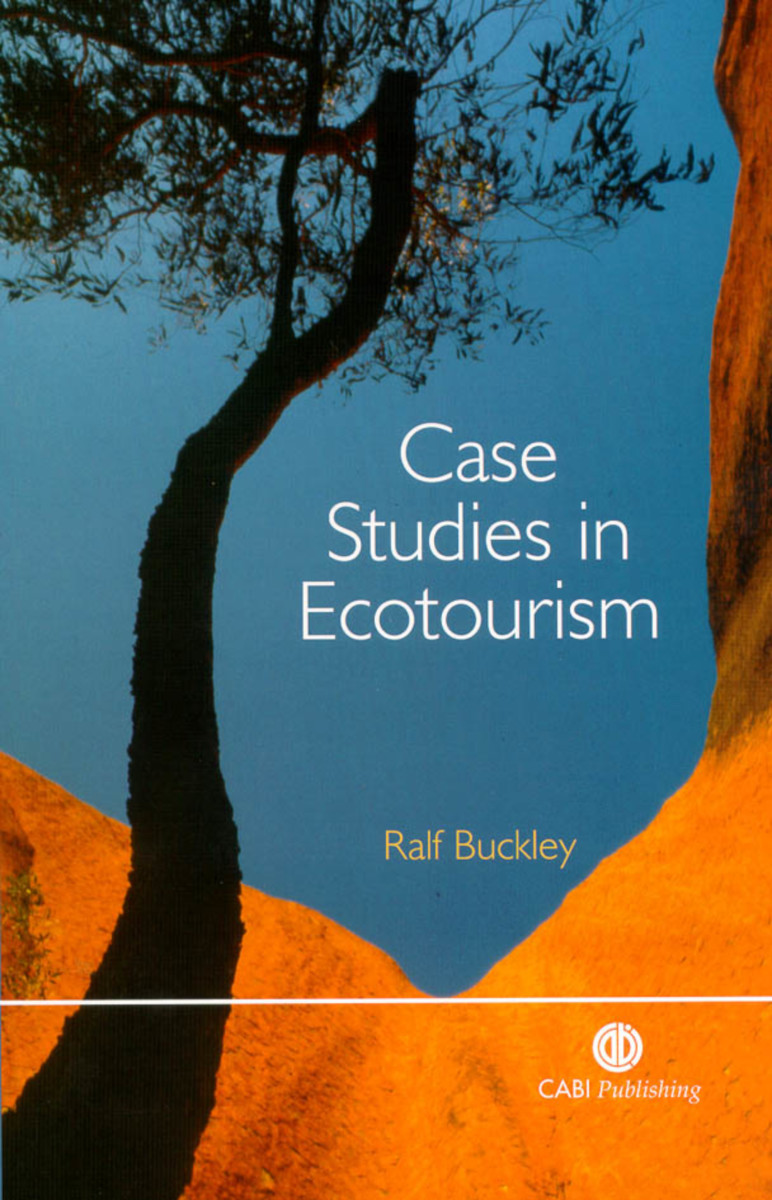Case Studies in Ecotourism
- Publisher
CABI - Published
17th April 2003 - ISBN 9780851996653
- Language English
- Pages 272 pp.
- Size 6.75" x 9.25"
As a counterpart to the growing volume of more theoretical literature in ecotourism, this volume presents a global compilation and analysis of over 170 real-life case studies in ecotourism, selected after an extensive screening process. It includes ecotours on land and sea, ecolodges and resorts, private reserves and public parks. The case studies range from the world’s best models to test cases, small and large, unique to representative. Data has been drawn from independent audits by the author and others, as well as from published reports from universities, multilateral and non-government organizations. The book shows what ecotourism can achieve, what constraints it faces, and provides a convenient and comprehensive reference for ecotourism enterprises, development agencies and university teaching.
"I consider this book to be a very useful resource for anyone interested in the ecotourism sector."
- Journal of Ecotourism
"All in all, it can be said that this book is a very valuable addition to the literature on ecotourism."
- Tourism Recreation Research
"This book provides a useful compendium of examples from around the world of ecotourism and raises questions concerning the definitions and applications of ecotourism."
- Tourism Geographies
FOREWORD - UNEP
CHAPTER 1. Introduction Aims, scope and focus
Case study approach
Methods
CHAPTER 2 - Africa
Phinda Private Game Reserve, South Africa
Chumbe Island Coral Park, Tanzania
Nxabega Lodge, Botswana
Cousin Island, Denis Island, Fregate Island, Seychelles
Casamance Village Tourism, Senegal
Kakum Canopy Walkway, Ghana
CHAPTER 3 - Asia Pacific
Rapita Lodge, Soloman Islands
El Nido Resort, Palawan, Philippines
Turtle Island, Fiji
Salani Surf Resort, Samoa
Narayani Safari Hotel and Lodge, Nepal
Ulu Ai Longhouse, Sarawak
Earth Sciences Expeditions, China
Togian Islands, Indonesia
Kanchanburi Ecotourism Cooperative, Thailand
Gobi Gurbansaikhan, Mongolia
CHAPTER 4 - Australia and New Zealand
Earth Sanctuaries Ltd, Australia
Yellow-Eyed Penguin Reserve, New Zealand
Broome Bird Observatory, Australia
Binna Burra Lodge, Australia
Arthur’s Pass Wilderness Lodge, New Zealand
World Expeditions, Rafting and Seakayaking, Australia
Taka Dive, Australia
Waitomo Glow Worm Caves, New Zealand
Mon Repos Turtles, Australia
CHAPTER 5 - South and Central America
Monteverde Cloud Forest Reserve, Costa Rica
Una Ecopark, Brazil
Wekso Ecolodge, Panama
Chalalan Ecolodge, Bolivia
Community Baboon Sanctuary, Belize
San Pedro Volcano, Guatemala
Cuatro Cienegas, Mexico
CHAPTER 6 - North America and Europe
Redberry Pelican Project, Canada
Betchart Expeditions, USA
Touristik Union International, Germany
Earthfoot Travel, USA
Baikal Watch, Russia
Nols Seakayak, Prince William Sound, Alaska
Prespa, Greece
Russian Zapovedniks
CHAPTER 7 - Artic and Antartics
Antarctic Tourism
Explorer Shipping, Antarctica
Arctic Tourism
Aurora Expeditions, Svalbard
Test Cases
Couran Cove Resort, Australia
Kingfisher Bay Resort, Australia
Island Tourism, Maldives
Himachal Helicopter Skiing, India
Sport Hunting
Whalewatch Kaikoura, New Zealand
CHAPTER 8 - Discussion and Conclusions
Significance and Context
Ecotourism and Sustainability
Scale and Leverage
Economic, Social and Environmental Contexts
Boundaries and Expectations
Nature-based Product
Environmental Management
Environmental Education
Contributions to Conservation
Conclusions
Ecotourism can Contribute to Conservation and Communities
In Developed Nations, Ecotourism in Parks is Politically Charged
A Strong Conservation Framework is Needed in Developing Nations
International Oversight Helps Maintain Standards
Ecotourism Signatures Differ Between Regions
Big Ecotourism is Possible but Currently Rare
The Future of Ecotourism


